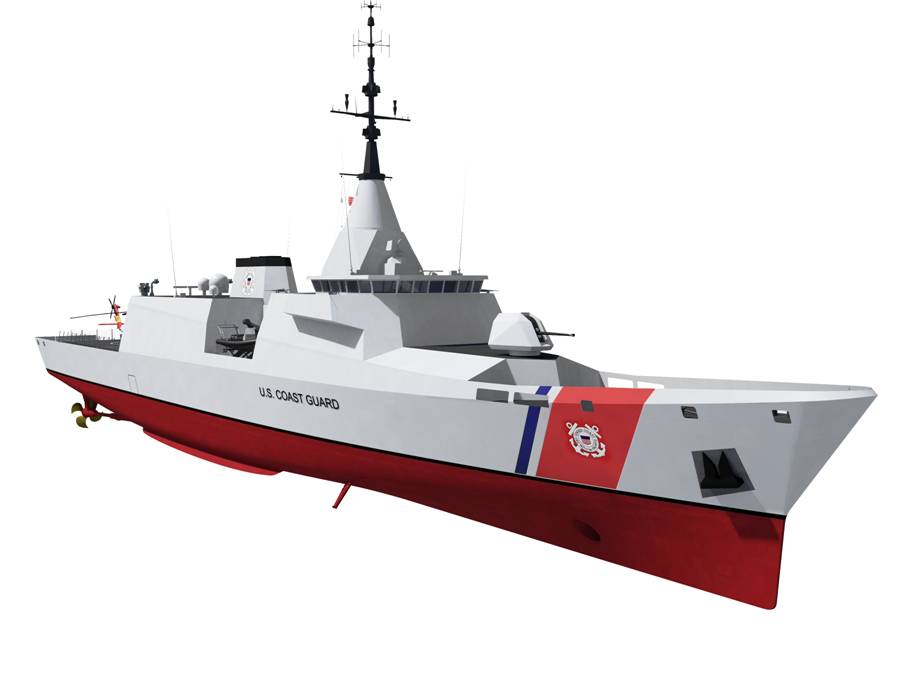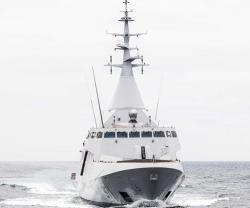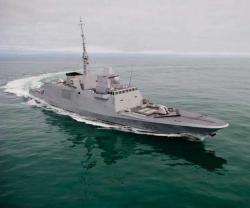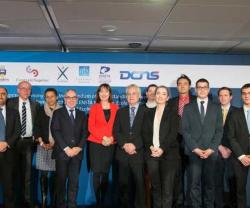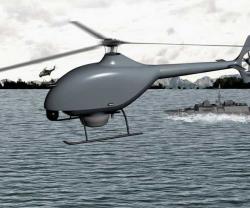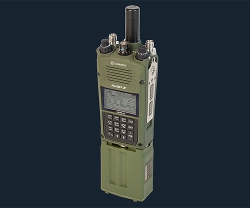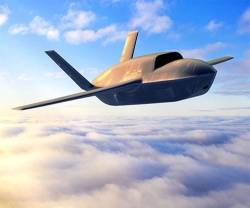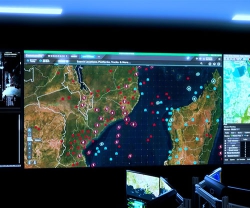DCNS: MSS Innovations at MAST
01.07.2010 North America
DCNS showcased its latest studies and innovations to combat maritime insecurity and monitor changing naval missions at the Maritime Systems & Technology Show (MAST Americas) held in Washington, DC this past week (22-24 June 2010).
Maritime Safety & Security (MSS) has become one of the biggest challenges in all seas due to the combination of asymmetric threats including piracy and terrorism, ever-expanding maritime traffic, rising accident rates and growing levels of illegal trafficking. Drawing on its expertise in naval systems, DCNS offers innovative new solutions tailored to customer needs.
The DCNS-designed single integrated mast gives the bridge and the mast-mounted sensors of Gowind OPV/corvettes 360° visibility. This patented solution significantly improves overall operational efficiency and the safety of flight deck (by helicopters and UAVs) and commando boat operations. The mast’s inherent simplicity ensures lower costs as well as minimum (and easy-to-perform) at-sea maintenance and full compliance with standard sustainability requirements under all operating conditions. DCNS experts specialising in materials and radar engineering have developed a solution offering optimal balance between structural strength and RF transparency. Following successful prototype testing in 2009, the single integrated mast technology will be a key feature of the Hermes OPV, the first of the Gowind range, now under construction at DCNS’s Lorient shipyard. Towards the end of 2011, the French Navy will begin sea trials to test both ship and mast under actual operating conditions. Single integrated masts are also part of other innovative ship designs now being offered to navies and coastguards around the world.
DCNS is also developing a complete IT system for the extended surveillance and analysis of maritime traffic. This system will be able to continuously track all types of vessels within 400 km of the coast under all weather conditions. Algorithm-based decision-making aids will enable the system to detect anomalous behaviour, hence situations ranging from distress to potential disasters and environmental catastrophes, as well as suspicious behaviour that may be linked to acts of terrorism, piracy, illegal immigration or fishing, or drug trafficking.
Maritime Safety & Security (MSS) has become one of the biggest challenges in all seas due to the combination of asymmetric threats including piracy and terrorism, ever-expanding maritime traffic, rising accident rates and growing levels of illegal trafficking. Drawing on its expertise in naval systems, DCNS offers innovative new solutions tailored to customer needs.
The DCNS-designed single integrated mast gives the bridge and the mast-mounted sensors of Gowind OPV/corvettes 360° visibility. This patented solution significantly improves overall operational efficiency and the safety of flight deck (by helicopters and UAVs) and commando boat operations. The mast’s inherent simplicity ensures lower costs as well as minimum (and easy-to-perform) at-sea maintenance and full compliance with standard sustainability requirements under all operating conditions. DCNS experts specialising in materials and radar engineering have developed a solution offering optimal balance between structural strength and RF transparency. Following successful prototype testing in 2009, the single integrated mast technology will be a key feature of the Hermes OPV, the first of the Gowind range, now under construction at DCNS’s Lorient shipyard. Towards the end of 2011, the French Navy will begin sea trials to test both ship and mast under actual operating conditions. Single integrated masts are also part of other innovative ship designs now being offered to navies and coastguards around the world.
DCNS is also developing a complete IT system for the extended surveillance and analysis of maritime traffic. This system will be able to continuously track all types of vessels within 400 km of the coast under all weather conditions. Algorithm-based decision-making aids will enable the system to detect anomalous behaviour, hence situations ranging from distress to potential disasters and environmental catastrophes, as well as suspicious behaviour that may be linked to acts of terrorism, piracy, illegal immigration or fishing, or drug trafficking.
Previous PostNen Lynx AMR flown on a predator B UAS
Latest news
Latest events
Dubai Airshow
17 - 21 Nov 2025Dubai World Central (DWC) - United Arab EmiratesEgypt Defence Expo (EDEX)
01 - 04 Dec 2025Egypt International Exhibition Center New Cairo - EgyptDoha International Maritime Defence Exhibition & Conference (DIMDEX 2026)
19 - 22 Jan 2026Doha - QatarUMEX – SimTEX
20 - 22 Jan 2026ADNEC Centre Abu Dhabi, - United Arab Emirates

